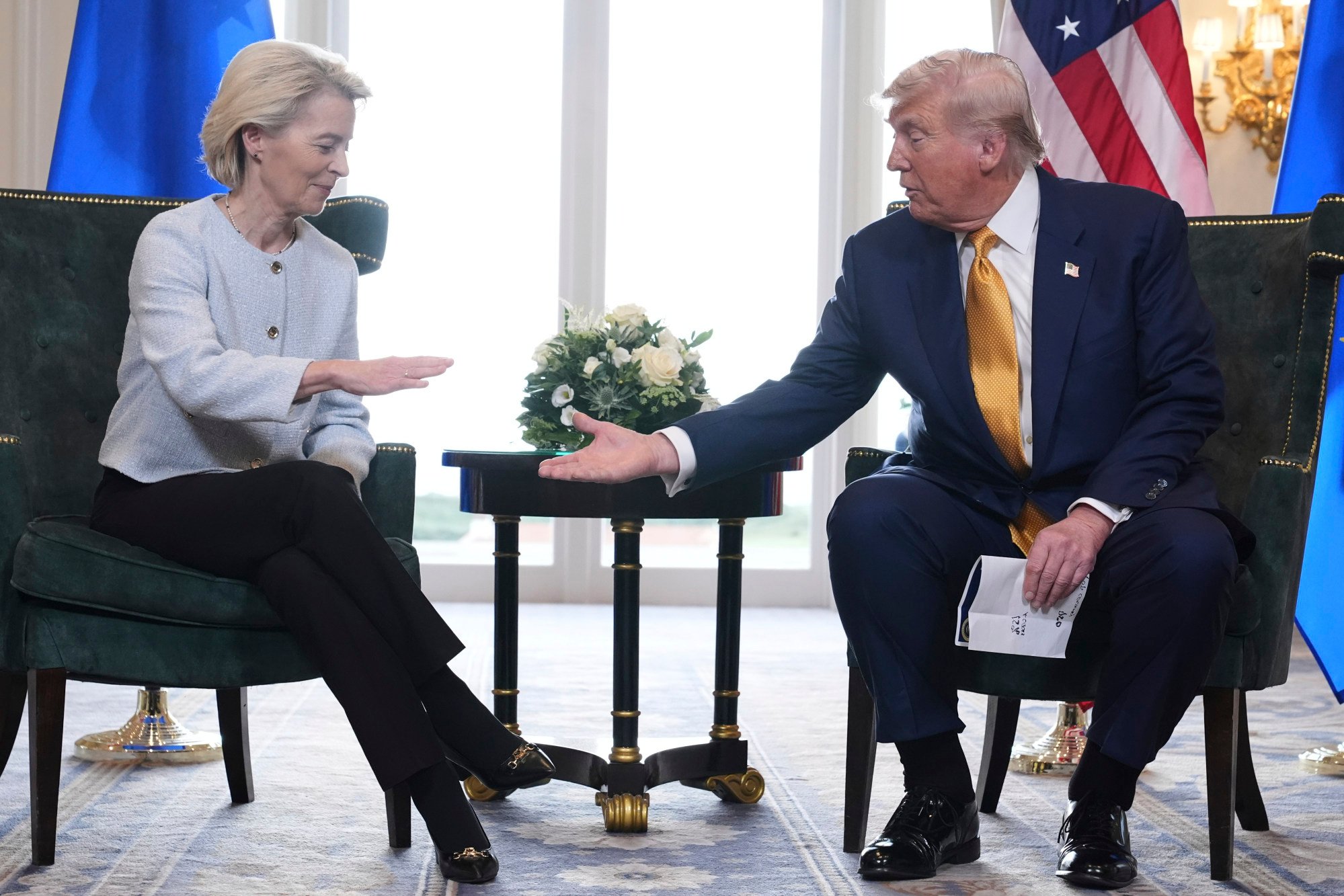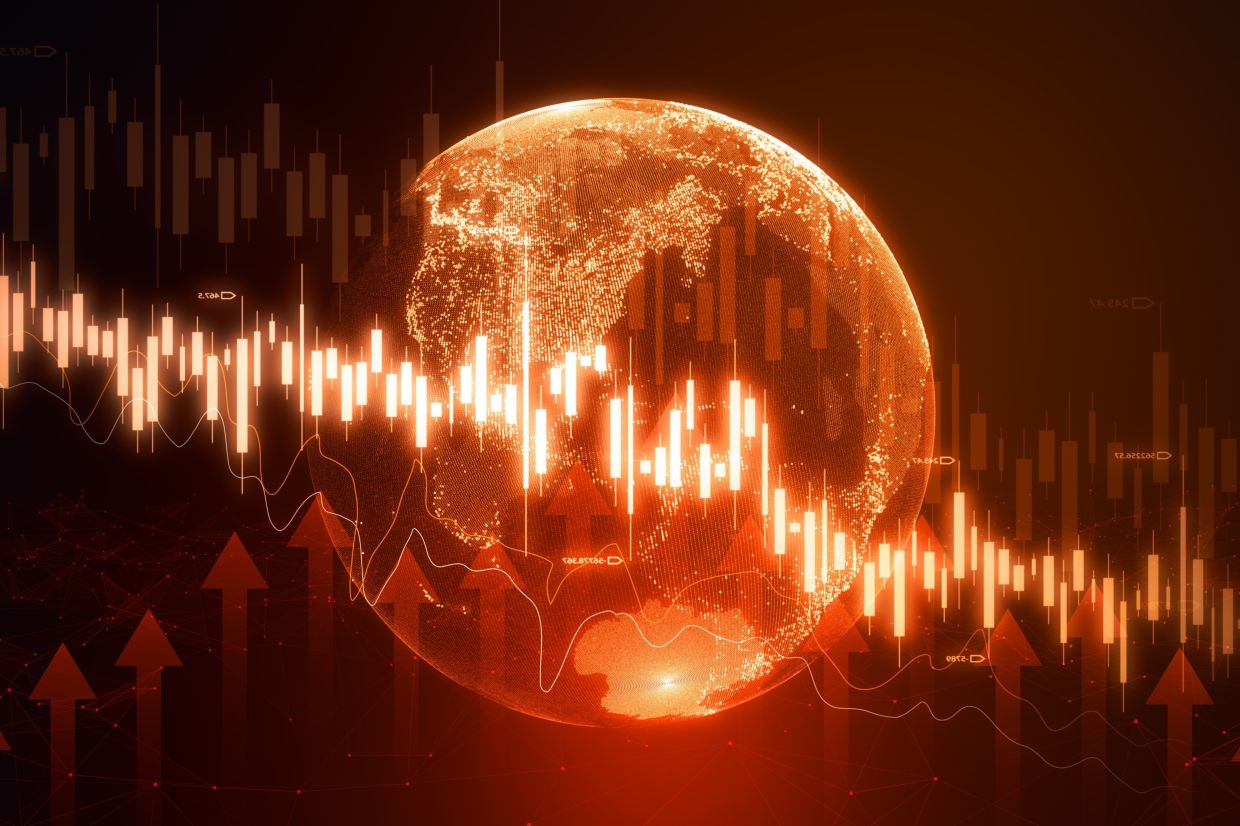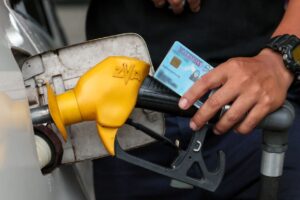After months of being pummelled with trade tariffs and security threats from the United States and years of pushing back against a rising China, the European Union on Tuesday sounded a death knell for the global rules-based order.
In its “Strategic Foresight Report 2025”, designed to steel the bloc for a risk-laden future that looks darker by the day, the European Commission said “we are witnessing the erosion of the rules-based international order and fracturing of the global landscape”.
“Geopolitical turmoil and erosion of global multilateral order further enhance the need for autonomy in the capability to protect current and future generations,” read the report, adding that “a return to the previous status quo seems increasingly unlikely”.
Alluding to, but rarely referring to, China or the US by name, the commission called on the EU to reduce its dangerous levels of dependence on the US for digital and financial services and China for critical minerals.
“Recent years show that everything can be weaponised: supply chains, migration, trade, humanitarian aid, space and information,” according to the report, seen as a curtain-raiser for an annual speech from European Commission President Ursula von der Leyen on Wednesday.
Reliance on other powers for minerals, the report said, “poses serious economic and security risks, especially given that the export restrictions on industrial raw materials have seen a more than five-fold increase since 2023”.

“Excessive dependency on key services provided by non-EU entities in sectors such as digital and finance exposes the EU to risks, including data security vulnerabilities, service disruptions, espionage and economic coercion,” it added, noting that “around 70 per cent of the EU’s cloud infrastructure is controlled by three US companies: Amazon Web Services, Microsoft, and Google”.
During her state of the EU address, the German official – who, through a series of crises, has become increasingly embattled over recent months – will set out her suite of policies for the year ahead.
Von der Leyen has in the past used the platform to announce China-focused proposals, including the blockbuster anti-subsidy probe into Chinese-made electric vehicles, a ban on goods made using forced labour, and the launch of the Global Gateway infrastructure drive, billed as a rival to Beijing’s Belt and Road Initiative.
While the contents of her speech are closely guarded, it is expected that she may flesh out plans for an economic security doctrine earmarked for publication by the end of this year.
Beijing, meanwhile, will be listening out for confirmation that the bloc is open to using secondary sanctions against its companies for buying Russian energy products, reports of which appeared in the Financial Times this week.
The speech will be delivered against a grim backdrop. Von der Leyen is under fire for championing a lopsided tariff deal with US President Donald Trump that saw the EU reduce tariffs on and open its market to US goods in return for a 15 per cent US tariff on most EU-made goods in July; meanwhile her pleas to Chinese President Xi Jinping in that same month to remove restrictions on the export of rare earth elements and magnets were ignored.
A survey published on Tuesday by the French publication Le Grand Continent found that 60 per cent of citizens across five large EU member states want von der Leyen to resign, while 51 per cent felt “humiliated” by her tariff deal with Trump.
An American security blanket, shielding Europe since World War II, may be disappearing, while summer hopes for an end to the conflict in Ukraine have largely faded.
Rather than concrete policies, however, the Tuesday report focused on naming the risks to the EU, from security and global governance challenges to climate change and health crises externally, to rising disinformation and challenges to democracy internally.
“From the United Nations to the World Trade Organization, key pillars of the global order are under stress,” it said.
“This is especially important for the EU, which has built its strengths on openness: common trade policy functioning in synergy with the single market, international partnerships and standards are all contingent on rules-based international governance.”
Nor did it lay out solutions to the many named problems. Instead, it generally called for better policies and an improvement on how the bloc sells itself to the world, under the branding “resilience 2.0”.
At the top of the eight-point to-do list was “developing a coherent global vision for the EU, a challenge that has beset policymakers throughout the 68-year existence of the union and its precursors.
“The global order has changed considerably since the commission adopted the first strategic foresight report in 2020,” Glenn Micallef, the EU commissioner intergenerational fairness, youth, culture and sport, told a press conference on Tuesday.
“Then the theme chosen was also resilience, and we identified lessons in strengthening resilience of the European Union.”






